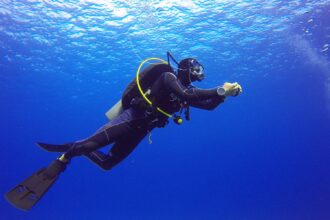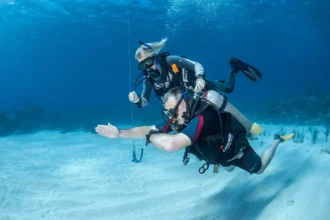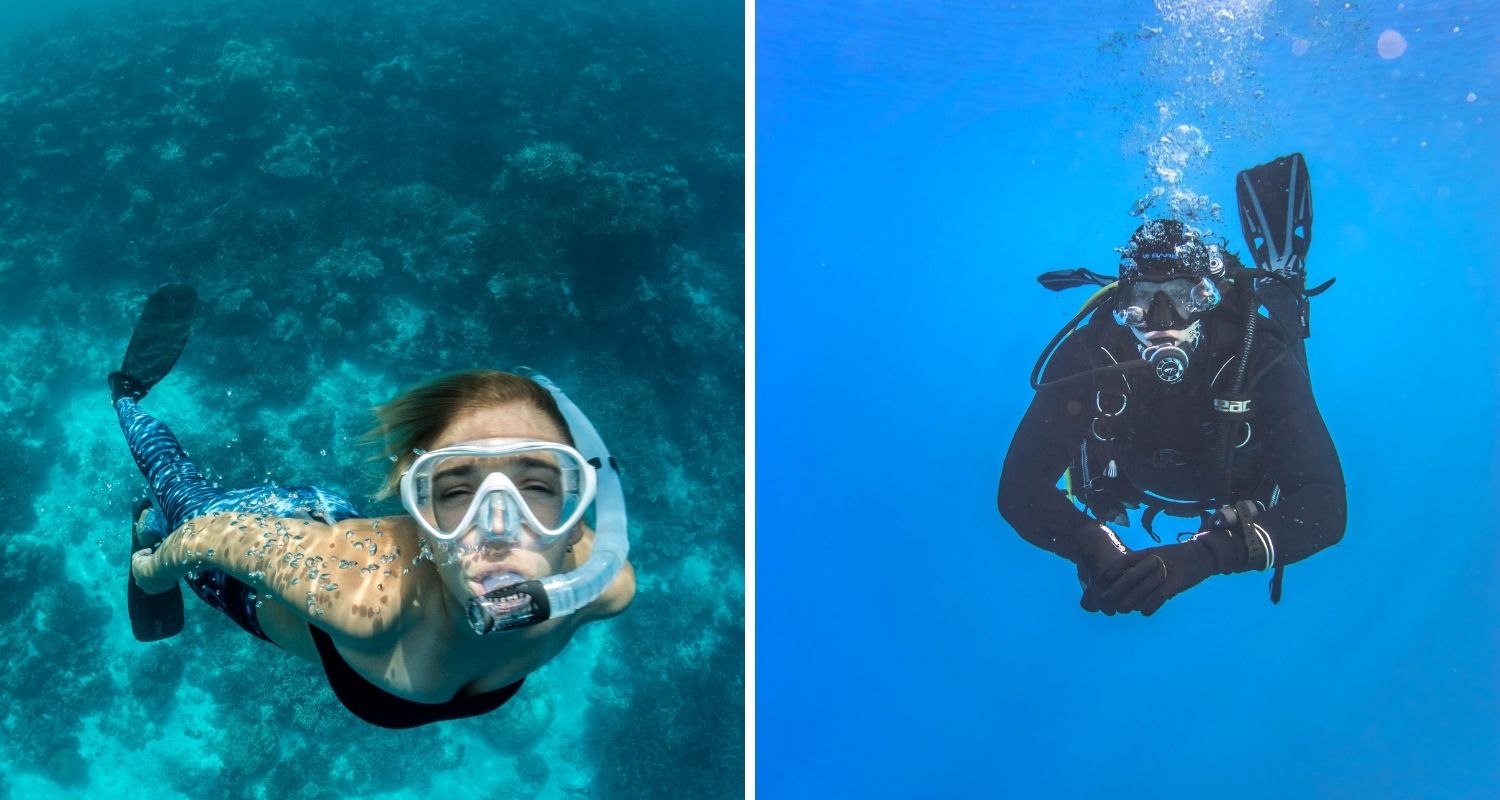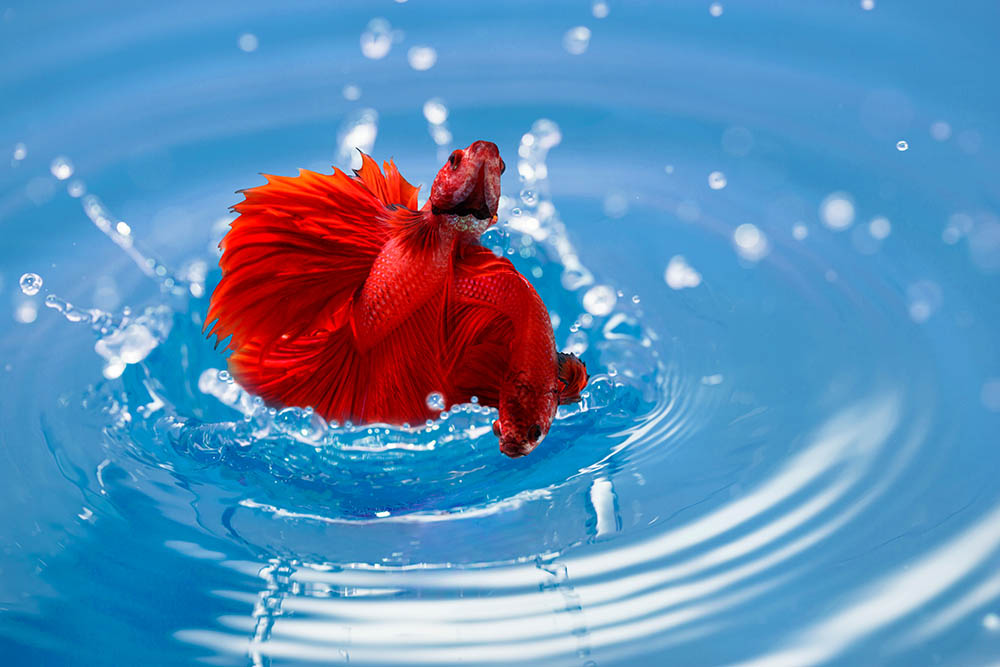Starting your scuba diving journey is one of the most exciting experiences you will ever have. The underwater world is full of colours, new marine life, and calm silence that you will not find anywhere else. But like any adventure sport, scuba diving requires preparation, awareness, and the right mindset. Many beginners make simple mistakes that can affect their comfort, confidence, and safety underwater.
- Not checking your scuba gear properly before entering the water
- Not equalizing your ears early or often enough
- Using the arms too much instead of the legs
- Not controlling breathing properly underwater
- Forgetting to check your air supply regularly
- Poor buoyancy control during the dive
- Swimming too close to the sea floor or coral reefs
- Not staying close to the dive buddy or group
- Descending too fast due to nervousness
- Ignoring the dive briefing
- Holding your breath underwater
- Wearing the wrong amount of weights
- Swimming too fast and missing the experience
- FAQs
In this complete beginner-friendly guide, you will learn the most common mistakes new scuba divers make and how you can avoid them easily. If you are planning your first dive soon or want to improve your skills, this guide will help you feel more prepared. You can also read more beginner diving guides on our website ScoobaDiveGuide.com for step-by-step help.
Not checking your scuba gear properly before entering the water
One of the biggest mistakes new divers make is rushing through their gear check. Scuba equipment is designed to keep you safe underwater. Even a small issue like a loose strap or misplaced weight can affect your dive.
Before you enter the water, take your time and check everything slowly. Make sure your mask fits well, your BCD inflates properly, your regulator breathes smoothly, and your air tank is fully secure. Many beginners feel shy or nervous during group dives and skip important steps. But remember, a proper gear check takes only a few minutes and gives you full confidence throughout the dive.
If you want a detailed beginner gear checklist, check out our scuba diving tips on ScoobaDiveGuide.com.
Not equalizing your ears early or often enough
Ear pain is one of the most common issues new divers face. This usually happens because beginners forget to equalize their ears as they descend. Waiting too long to equalize or forcing it suddenly can cause discomfort and may even injure the ear if ignored.
The best way to avoid this is to equalize early and often. Even before you feel pressure, start equalizing gently every few seconds. If your ears do not equalize, stop descending and try again. Patience is key. Never continue going down if your ears hurt.
Using the arms too much instead of the legs
Many first-time divers feel the need to “swim” using their hands like they do on the surface. This leads to faster fatigue and uneven movement underwater. Scuba divers are supposed to use slow, controlled fin kicks to glide smoothly through the water.
Keeping your arms relaxed by your side and focusing on gentle leg kicks will help you move better, save energy, and improve buoyancy control. It also prevents accidental touches on corals or marine life.
Not controlling breathing properly underwater
Breathing slowly and calmly is a very important part of scuba diving. New divers often breathe too fast due to excitement or nervousness. This can cause quick air loss, discomfort, and difficulty staying calm.
Practice slow, deep breaths through your regulator. Think of it like inhaling softly and exhaling even longer. When you breathe slowly, you stay relaxed, maintain good buoyancy, and enjoy your dive much more.
Forgetting to check your air supply regularly
Another common beginner mistake is not checking their air gauge often. New divers are so excited by the underwater environment that they forget to keep an eye on their tank pressure.
You should check your air every few minutes. A good habit is to check it whenever you look at your depth or direction. Always signal your air levels to your buddy and plan your ascent early. Never wait until the tank is too low.
Poor buoyancy control during the dive
Good buoyancy is what separates a relaxed diver from a struggling one. Many beginners either sink too much or float too high because they add or remove air from their BCD too quickly.
Instead of using large air adjustments, make very small changes. Give the air a few seconds to respond. Also, controlling buoyancy with your breathing helps a lot. Slow exhalations help you sink slightly, and gentle inhaling helps you rise a little.
Over time, buoyancy becomes natural, but beginners should stay patient and let their bodies adapt.
Swimming too close to the sea floor or coral reefs
It is common for new divers to stay very close to the bottom because it feels safe. But this can cause you to accidentally kick up sand, disturb marine life, or damage coral reefs. Sometimes, being too close also increases the risk of hitting sharp objects or stirring sediments that reduce visibility.
Try to maintain a safe distance from the bottom. A small change in buoyancy can help you stay at a comfortable height and enjoy the view without causing harm.
Not staying close to the dive buddy or group
A buddy system is one of the most important rules in scuba diving. Beginners often get distracted and swim away from their partner or group. This can be unsafe if you face an issue underwater or lose visibility in low-light conditions.
Make it a habit to keep your buddy within arm’s reach or at least within visible distance. Check on each other regularly. Diving together keeps you safe and makes the experience more enjoyable.
Descending too fast due to nervousness
Some beginners rush their descent because they want to reach the bottom quickly. However, going down too fast can cause ear pain, increase anxiety, and make it harder to equalize properly.
A slow, controlled descent is always better. Stay close to the dive line if one is available and follow the instruction of your dive leader. Moving slowly gives your body time to adjust and helps you relax underwater.
Ignoring the dive briefing
Many new divers underestimate the dive briefing and do not listen carefully. A dive briefing contains important information such as the dive plan, maximum depth, marine life to look out for, signals, entry and exit instructions, and safety rules.
If you miss this information, you may feel confused underwater. Always pay full attention to the dive instructor before entering the water. A good briefing makes your dive smoother and safer.
Holding your breath underwater
Holding your breath underwater is a dangerous mistake for any diver, especially beginners. Some new divers do this when they feel nervous or when they want to focus on buoyancy. But scuba diving requires continuous breathing. Holding your breath can lead to lung-related injuries due to expanding air while ascending.
Remember the golden rule of scuba diving: always breathe normally and never hold your breath.
Wearing the wrong amount of weights
Using too many weights or too few weights can affect your buoyancy control. Beginners often choose the wrong amount because they are unsure or because they rush through the preparation.
Always let your instructor or divemaster help you choose the right weight based on your body type, wetsuit thickness, and water conditions. Proper weighting makes your dive much more comfortable.
Swimming too fast and missing the experience
Excitement makes many beginners swim quickly from one place to another. But scuba diving is not a race. Moving fast increases air consumption and can confuse your breathing rhythm. Slow diving lets you enjoy the underwater world, spot more marine life, and conserve your energy.
Take your time, move slowly, and enjoy every minute of your dive.
FAQs
Is scuba diving safe for beginners?
Yes, scuba diving is safe for beginners when proper training, certified instructors, and safety rules are followed. Most issues happen only when divers ignore instructions or panic.
How can I improve my buoyancy control as a new diver?
Practice slow breathing, add air to your BCD in very small amounts, and stay relaxed. Over time, buoyancy becomes easier and more natural.
What is the biggest mistake new scuba divers make?
One of the biggest mistakes is not checking their gear properly or forgetting to equalize their ears during descent.
Should I be scared if it’s my first dive?
It is normal to feel nervous, but with a trained instructor and proper safety rules, your first dive will be safe and enjoyable.
How can I prepare for my first dive?
Reading beginner guides on ScoobaDiveGuide.com, staying calm, practicing breathing, and listening to your dive instructor will help you feel more confident.




